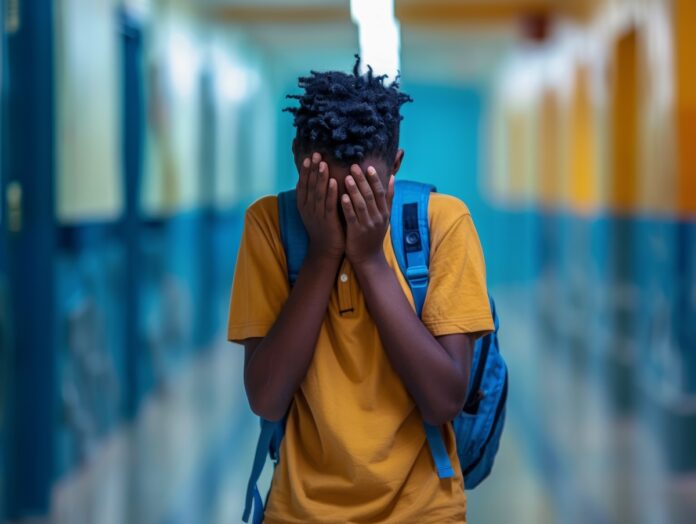A report released by the Centers for Disease Control and Prevention (CDC) in 2023 showed “more than half (52%) of LGBQ+ students recently experienced poor mental health and, concerningly, that more than 1 in 5 (22%) attempted suicide in the past year.” These findings were consistent across race and ethnicity. The report found “high and worsening levels of persistent sadness or hopelessness across all racial and ethnic groups, and that reported suicide attempts increased among Black youth and White youth.”
A 2023 study from the Journal of the American Medical Association confirmed that intersectionality also impacts these risks. It stated that “The combination of social identities, such as being Black and not having a college degree or being Latino and identifying as a sexual and gender minority individual, is associated with multiple layers of health-related disadvantage.”
These young people face challenges at every turn that require proper support, including “unique social stressors, including victimization and discrimination, as a result of their minority position.” Approaching these young people with care and consideration can leave them feeling more supported. We asked Live Out Loud Founder and Executive Director Leo Preziosi, Jr. for tips on supporting the LGBTQIA+ young people in your life.
Six Key Ways To Support The LGBTQIA+ Youth in Your Life
Educate Yourself On Your Own
Don’t expect the LGBTQIA+ children in your life to constantly be translating their experience to you. Take the time to try to learn as much as you can about what they are up against so that you can be a better-informed listener. You are responsible for working to obtain the language and tools needed to communicate with them. “It’s all about approaching communication and listening without judgment,” said Preziosi Jr. “It’s not the child’s job to educate. The parents or the teachers, and that happens. But it’s not their job.”
Find Community
There are likely other adults going on the journey you are. Connect with them away from the littles in your life so they don’t feel any undue pressure from your efforts. Look into resources like PFLAG and Okay, My Kid Is Gay. Family podcasts and books like The Conscious Parent are helpful as well.
Surround Them With Role Models
Integrate the stories of LGBTQ persons into what you’re teaching your child so they see themselves. Representation matters in all aspects of life. “One of the things that we do when we go into schools, we bring in LGBT role models to talk to students to really talk to students about their Journey about what it was like for them in school and how they, you know, came to understand who they were and accept who they were,” said Preziosi, Jr.
Meet Them Where They Are
Lean into opportunities to learn about their interests, no matter what they are. “It’s really getting to know your child and getting to know their interests, spending time with your child, and having conversations with your child,” said Preziosi, Jr.
This helps develop a safe space for them to be themselves at home.
Give Them Space To Come To You
Don’t be so excited to flaunt your parenting skills and emotional intelligence that you don’t leave room for the children in your life to communicate what they feel. “It has to be very organic. It has to be very, very natural,” Preziosi Jr. advised. “It’s really up to the child to start that type of conversation. You know, if you think your son or daughter is gay, You know, my advice is don’t approach it. Let them come to you; this is what we hear from our students,” he continued. “Don’t force it. Let it evolve naturally.”
Consider Seeking Another Voice
“Sometimes it’s great to bring someone else into the picture,” explained Preziosi, Jr. “That could be, um, a relative who could be a friend of the family and might be LGBT or an ally.” “A child speaking to their parents may not be the first step.”
It’s important to depersonalize their choice to discuss their feelings with others. The goal is to prioritize your child’s mental health and emotional safety, not your feelings. De-center yourself and focus on their experience.
“Give your child some space because they need to understand it for themselves and accept themselves, and they may do that through friends. They may do that through a counselor at school, they may do that through their GSA Club,” he added.
“Sometimes it’s just harder to have that conversation with your parents or siblings first.”






